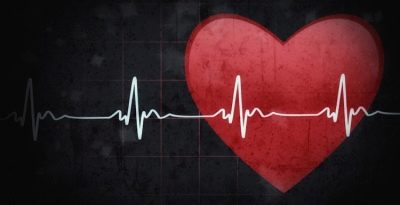Psychosomatic causes of vascular dystonia in adults and children
Dystonia in children and adults is closely associated with mental state and stress. This is not denied by any doctor, but traditional medicine, unfortunately, cannot give an answer to the question, what psychological problems lead to the development of this polyetiological syndrome - the IRR syndrome.
In this article we will examine in detail what kind of emotions, feelings and experiences can cause the disruption of the autonomic nervous system.
general information
The dysfunction of the autonomic nervous system is absent in the modern classification of diseases. The term IRR is recognized as obsolete, and now it can only be found in a philistine application. Doctors call the problem somatoform dysfunction of the nervous system, that is, consider the problem in combination with psychosomatic components.
It is much easier for a doctor at the hospital to announce to the parents of the child the diagnosis of “IRR” or “neurocirculatory dystonia”, since this does not require a search for the true cause. Somatoform disorder, introduced in the ICD, always requires a search for one or another destructive stereotype of clinical thinking. At the same time, appointments are not always effective.
Disruption of the vegetative system is always secondary in its principle. What follows them is what caused them - mental illness, emotional disturbances, organic damage to the central nervous system, hormonal changes (as in adolescents in puberty). Often, the IRR (we will call the problem as it is familiar to the reader) is accompanied by high blood pressure, coronary heart disease, anxiety and depressive mental disorders.
Symptoms in general are as follows: tremor, sweating, regular heart palpitations, intermittent fever, flushing, hot sensations, complaints of pain in any organ (the survey does not reveal any irregularities in the indicated location), fatigue, frequent bloating, dizziness, meteosensitivity , shortness of breath, recurrent joint pain.
In traditional medicine, it is customary to provide symptomatic and complex treatment, in which the place and psychotherapy. In addition to sessions, antidepressants or nootropics are often prescribed. The main recommendation of any doctor is to avoid stress..
Psychosomatic phenomena
Psychosomatics of VSD is based on understanding how the autonomic nervous system works. At the metaphysical level, it provides the interaction of the body and psyche. If anxiety appears in the mental background, thanks to the vegetative nervous system, the muscles get a signal to tighten, prepare for possible dangerous events, the heart begins to beat faster.
At the mental level, the person chooses how to assess the situation and situation - and what causes fear in one does not cause anything negative in the other. An event can be not only external, but also internal (certain experiences). For the signals of the autonomic nervous system, there is no difference what happens where (inside a person or outside), the reactions will be completely identical - the body begins to be brought to full “combat readiness”. The longer a person is in anxiety, the more likely the development of somatoform disorder.
Psychotherapists and psychoanalysts, often dealing with the IRR, are confident that most often it develops against the background of a person’s personal attachment to something that they have lost. For example, there was a good job that gave status and income, and then the person was reduced or fired. Anxiety surpasses, unable to let go of affection, he begins to suffer IRR.
Dystonia can develop in dreamers who have a strong desire, and they have no opportunity to realize it or just wait until it is realized by itself. A severe internal conflict is developing. This is what happens in children and adolescents who are given such a diagnosis.It is for this reason that dysfunctions of the autonomic nervous system occur in people who are now forced to live differently than before (divorced, injured, disabled).
More than others, psychologists think that adults and children who are incapable of controlling their ambitions are susceptible to the development of an impressionable, anxious and anxious people who are emotionally dependent on others (a typical childish cause). At risk - those who are overly responsible and pedantic, vindictive and extremely unsure of themselves.
Opinion researchers
Louise Hay and Liz Burbo claim in their books that VSD arises against the background of the suppression of true feelings, chronic lies and lack of sincerity..
Many researchers tend to believe that parents are always involved in the IRR in the child, forbidding the baby to cry or laugh out loud, shout or express emotions. They are based on the norms of behavior adopted in a particular society. But the child forms a persistent distortion of the reactions, which becomes a reflex.
Gradually, these children transform normal natural anger into pathological anger, fear into anxiety, and healthy envy, normal for children, into pathological jealousy and affection for material things.
Treatment
The main role in the treatment is entrusted not to cardiologists and pediatricians, but to psychotherapists.
Simultaneously with the study of improper destructive installations, the patient is recommended a relaxing effect - massage and reflexology, physiotherapy, rest in a sanatorium.
It is necessary to find the destructive habitual reaction-reflex and replace it with a positive emotion.
It is important to detect those feelings and thoughts, after which the attack of the symptoms of the IRR occurs.. The task is to depreciate them, stop giving them so much value. Gradually, the body will cease to perceive them as a signal for mobilization, and the state will improve.
If the heart began to beat every time a person thinks about the possibility of losing his job, you need to eliminate this fear, giving yourself a high rating as a specialist.














